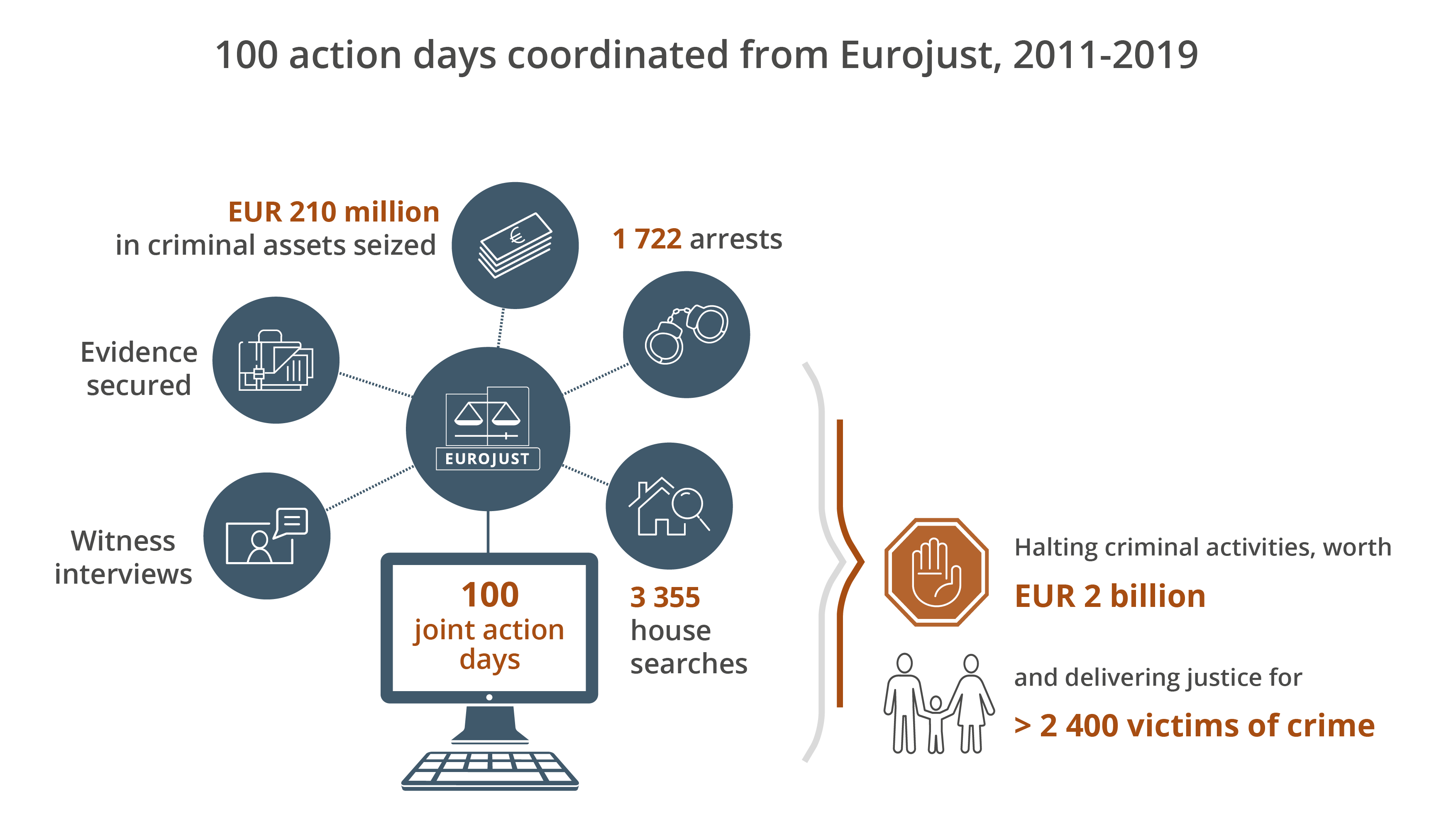Coordination centres are a judicial tool created by Eurojust in support to action days against criminal organisations and terrorist groups, where arrests, searches, interviews of suspects and witnesses, seizures of evidence and freezing of assets are carried out in several countries at the same time.
Eurojust coordinates the efforts of the competent national authorities, continuously monitors the ongoing operations, assists with legal and practical advice and facilitates the issuing of critical judicial instruments, ensuring that the actions taken lead to successful prosecutions.
Key to success is the unique setting in which representatives of the National Desks and/or Liaison Prosecutors of the involved countries supported by legal and technical experts from Eurojust operate from the coordination centre. Coordination centres are set up from a dedicated Eurojust room equipped with state-of-the-art technology and/or virtually via videoconference facilities, to ensure that evidence and information collected on the ground are swiftly exchanged amongst all involved national authorities in a secure environment.

